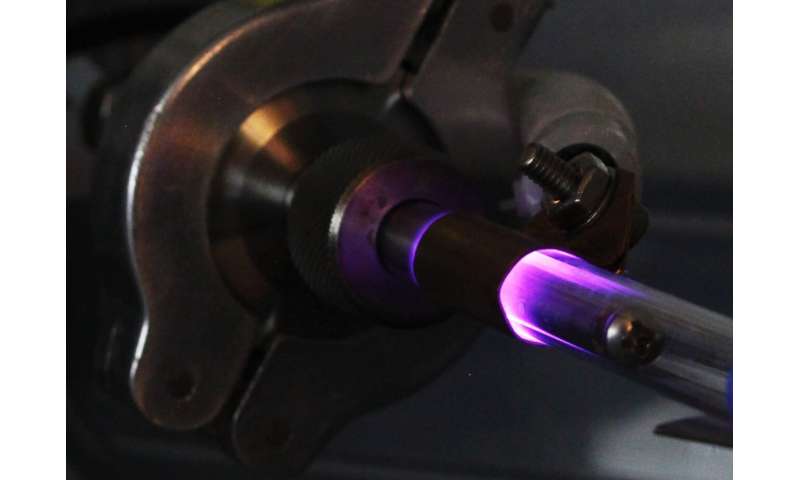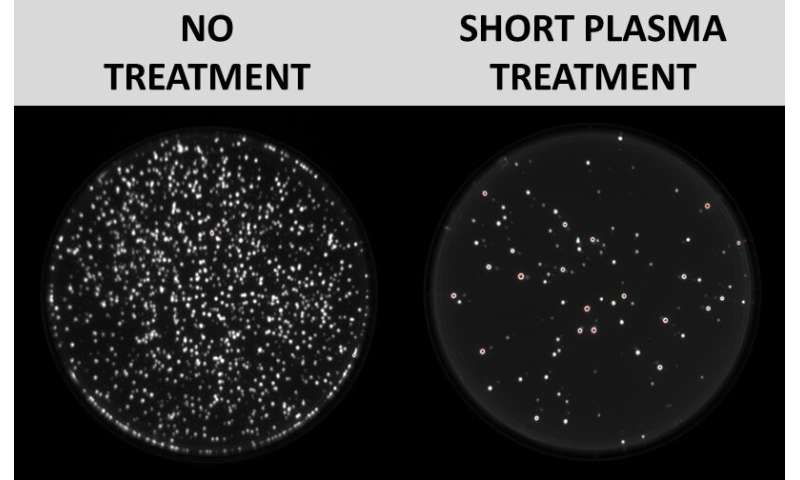Sterilizing surgical masks for safer reuse

The shortage of N95 and surgical masks has complicated efforts to control the COVID-19 pandemic and jeopardized the lives of health care workers, who are forced to reuse masks many times.
02 May 2020--Lorenzo Mangolini, an associate professor of mechanical engineering and materials science, and Joshua Morgan and Justin Chartron, assistant professors of bioengineering, have joined forces to investigate the use of low-temperature plasmas—partially ionized gases—to sterilize facemasks for safer reuse.
Surgical and N95 masks are made of fine polymer fibers, which act as a filter. They are too delicate for usual sterilization techniques such as the autoclave, which uses too high a temperature; and UV light, which does not penetrate deeply between the fibers. Low-temperature plasmas generate a broad range of bacteria- and virus-killing properties, while the temperature remains close to room temperature.
The faculty researchers, along with doctoral students Joseph Schwan, Troy Alva, and Brian Lupish; and postdoctoral scholar Giorgio Nava, contaminated surgical masks with E. coli, a bacterium commonly used to test sterilization, and subjected the masks to several minutes of the low-temperature plasma.
The masks were thoroughly sterilized, a promising result considering E. coli typically resist sterilization better than viruses.

The next step is to test the sterilization technique on masks that contain SARS-CoV-2, the virus that causes COVID-19.
The investigators envision developing a small, inexpensive, and potentially portable instrument that can be used by hospitals and clinics to routinely disinfect their masks.
Provided by University of California - Riverside
No comments:
Post a Comment